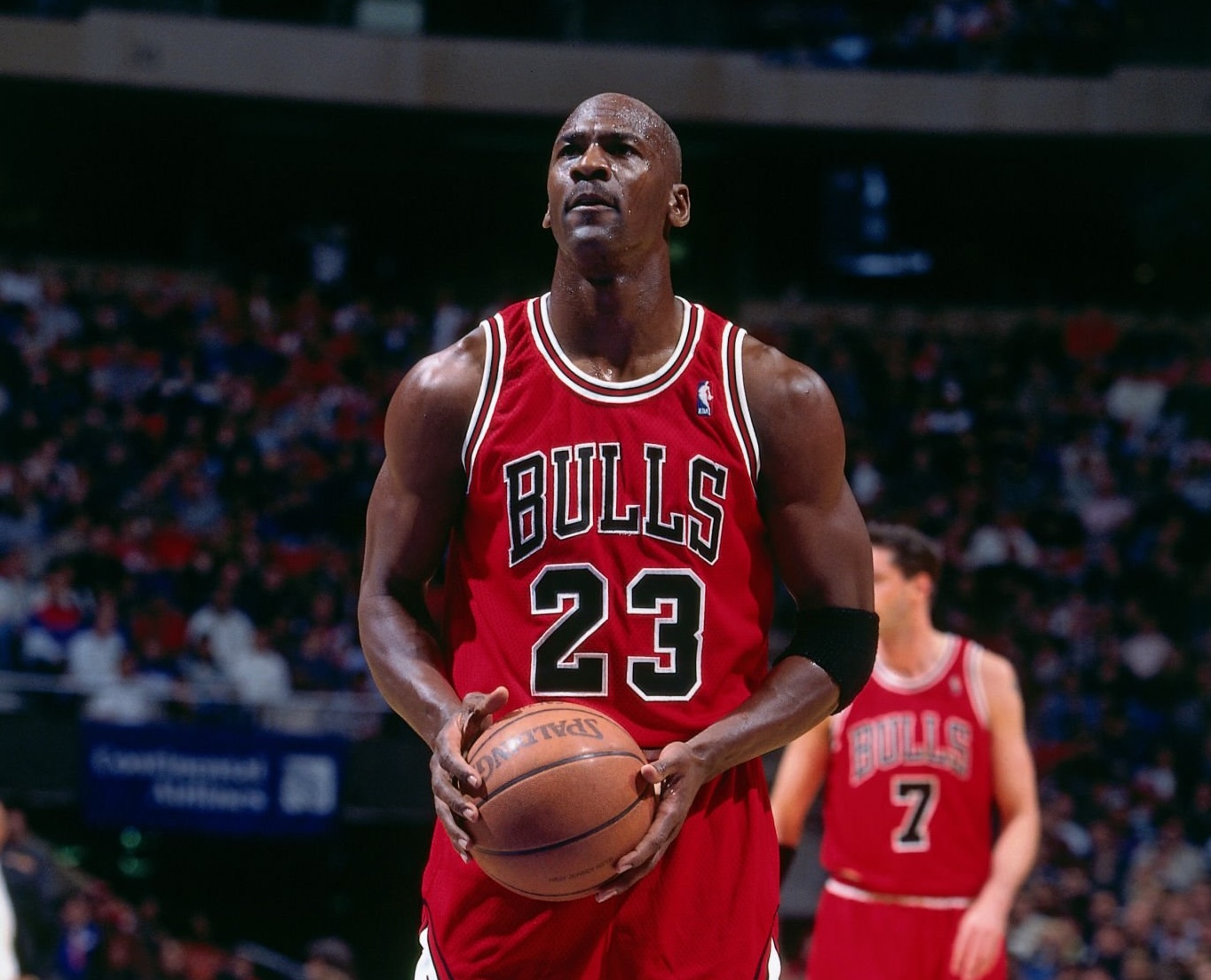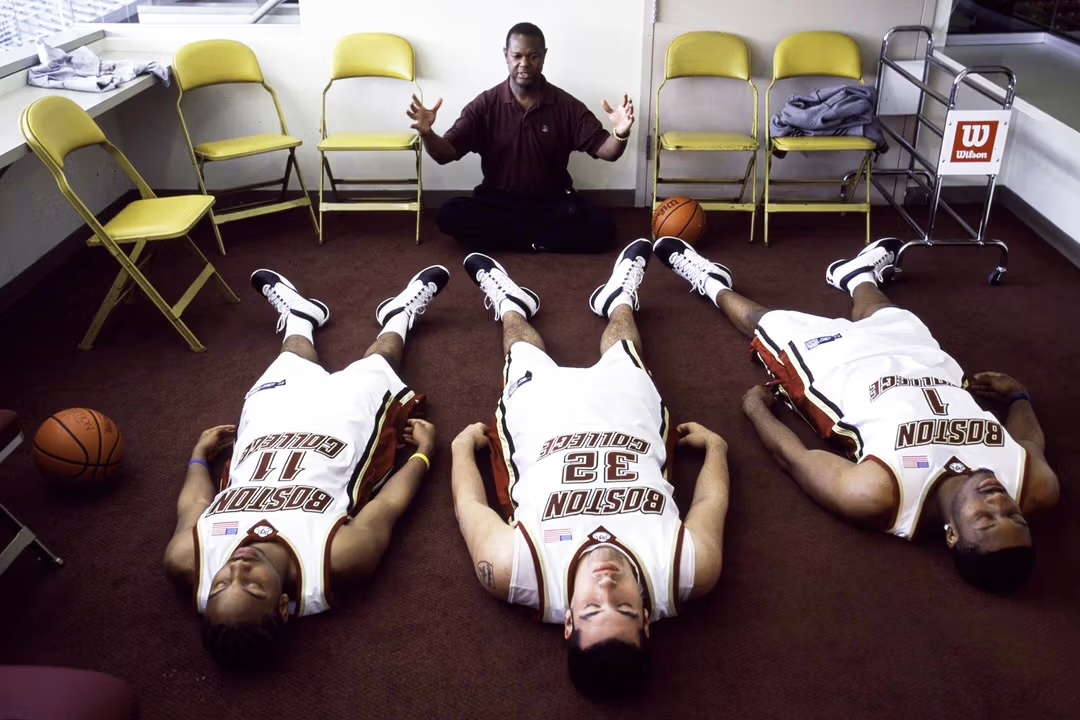Moxie: Stillness Is Strength
Jun 09, 2025ONE STORY
(Michael Jordan, March 16, 1996. Photo courtesy of Getty Images)
"Stillness Is Strength"
(Don't) Be Like Mike
Michael Jordan almost lost Game 6 of the 1998 Finals. Not because of nerves. Not because of pressure.
But because he couldn’t sleep.
Because he was so wired from constantly pushing himself that his body had forgotten how to shut down.
The night before what would become The Last Shot–the game-winner that cemented his legacy–Jordan lay awake, staring at the ceiling. His mind racing. His body exhausted but electric.
That’s when Phil Jackson called George Mumford.
Most people think champions are made only in the gym, in the film room, in those 4AM training sessions. But there’s a counterintuitive piece:
Champions are also made by when–and how–they choose to stop.
The Performance Whisperer
George Mumford knew this because he’d lived the opposite.
College basketball star turned painkiller addict turned heroin user. He’d spent years running from stillness, medicating the noise in his head, pushing through until his body broke down completely.

(George Mumford doing mindfulness work in 1990s.)
Rock bottom taught him something the performance world still doesn’t understand:
The highest performers aren’t the ones who can go the longest–they’re the ones who can recover well.
When Mumford walked into that Bulls locker room, he didn’t just teach meditation. He taught something more dangerous: tactical stillness. How to access calm in the middle of chaos. How to reset your nervous system between possessions. How to find the eye of the storm while 20,000 people are screaming.
Tactical Stillness
“You’re not trying to eliminate the noise,” he’d tell them. “You’re learning to dance with it.”
Jordan learned to sleep. Not just at night, but between quarters. Between free throws. Between the moments that mattered most.
And here’s what nobody talks about: Too many high performers are secretly the most exhausted people you know.
They’ve convinced themselves that rest is weakness. That stopping is quitting. That if they’re not grinding, someone else is getting ahead.
But your nervous system doesn’t care about your hustle. It operates on biology, not motivational quotes.
Push too hard for too long, and it will shut you down–usually at the worst possible moment.
The Science Is Brutal
Just one night of poor sleep reduces reaction time by up to 40%. Chronic sleep loss shrinks the prefrontal cortex–your decision-making center. Sleep-deprived brains look and perform like they’re legally drunk.
Meanwhile, the athletes who prioritize recovery show up to 24% better accuracy, 40% more speed, and 80% reduction in injury risk.
And if you're a leader? The stakes get even higher.
Sleep-deprived executives become more impulsive, less strategic, and emotionally reactive. They have fewer options at their disposal when making decisions and struggle with innovation and adapting to the unexpected.
Nearly half of business leaders don't get enough sleep four nights a week–undermining their leadership effectiveness and their organization's performance.
Stillness Is Strength
So how do you actually do this? First, stop treating rest like a reward. Start treating it like your foundation.
Rest isn't what you get to do after you've earned it–it's what enables everything else you want to achieve.
And here’s the deeper truth: Rest isn’t just about performance. It’s about presence. We’re not just what we do. We’re who we are.
Again! Louder for those in the back: We’re not just what we do. We’re who we are.
And stillness reminds us of that. When you pause, you reconnect–with yourself, with your values, with the people who matter.
That’s not weakness. That stillness is strength.
📜 TWO QUOTES
“You don’t need to wait for silence to be still.”
– George Mumford
"The game slows down when you can breathe.”
– George Mumford
🚀 THREE TAKEAWAYS
1. Speed isn't the flex we think it is. An ability to both get things done effectively and to take care of ourselves–that’s what separates the truly elite from the chronically burned out. Speed or otherwise.
2. Rest is how you remember who you are. In the rushing and pushing, we lose ourselves. Stillness brings you back–to your values, your people, your purpose. That’s not weakness. That’s wisdom.
3. You're too busy NOT to take a break. Rest renews. Rest restores. Rest respects the work that must be done.
🔍 MOXIE REFLECTIONS
-
Where are you grinding out of habit–not effectiveness?
-
What small moment today could become a reset cue?
-
How might your presence change if you saw rest as reconnection?
🛠️ TOOLS FOR GROWTH
🧩 PATTERN RECOGNITION: Action Bias
Action Bias says: When we’re under pressure, we need to move. We act not because it’s wise, but because it’s something.
This creates a loop: tension → reaction → more tension.
Mumford broke that cycle. He taught: When the moment heats up, pause. Let your nervous system settle. Let your full brain come back online.
That’s not passive. That’s power.
🧠 MENTAL SKILL OF THE WEEK: Tactical Stillness
Tactical Stillness is the ability to recover in real time–not after the day ends, but between the moments that matter.
It’s the shift from grinding on autopilot to resetting on purpose.
How to use it:
1) Take 3 deep breaths before your next transition.
2) Step away for a 10-minute no-input break after intense focus.
3) Build a 20-minute wind-down routine–same time, same steps, no exceptions.
This isn’t about slowing down for the sake of it. It’s about sharpening your edge. Stillness helps your brain reengage, your body recalibrate, and your presence return.
Because you don’t just lead through motion. You lead through mastery of pause.
🌱 ONE MORE THING
Summer is calling. And maybe you’re already planning to get away–to disconnect, to breathe, to remember what life feels like when you’re not always “on.”
Here’s a challenge: Whatever you’re planning to unplug, expand it by at least 10%.
More mornings without checking your phone.
More conversations without an agenda.
More moments where you’re not solving, not optimizing, not improving anything–just being.
Rest is renewal. Don’t deny yourself.
The work will be there when you return. And the person who returns–rested, recharged, reconnected–that person will be ready for what’s next in ways the exhausted version of you never could be.


